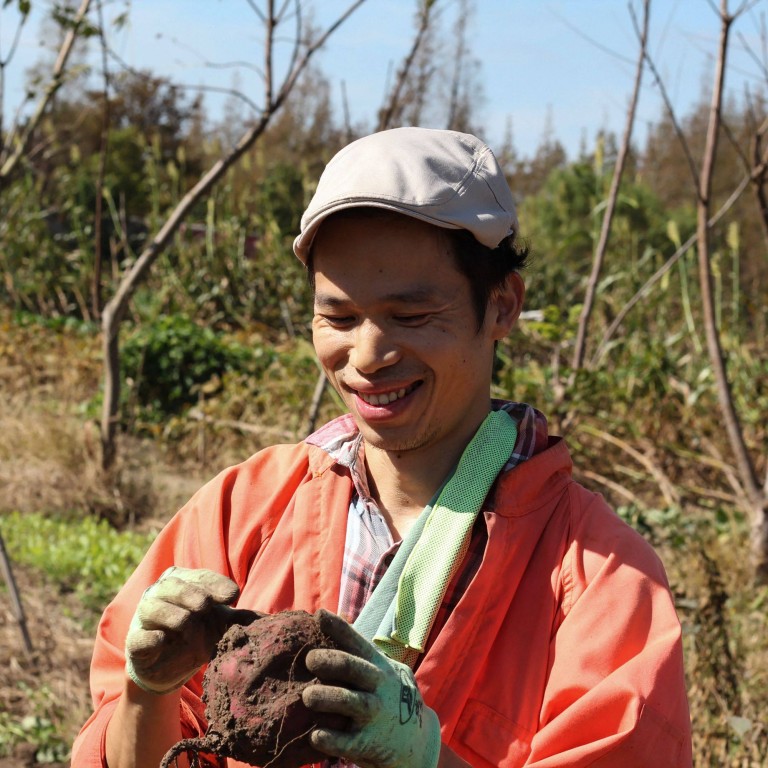
Letters | How young and digital-savvy ‘new farmers’ are reviving rural China
- Readers discuss the social media allure and economic value of young Chinese embracing the simple life, the country’s shrinking population, and respect for Hong Kong workers
Aquan and Shisan, the husband-and-wife duo behind the Weibo account ShisanAquan, went viral last year after they bought a log cabin in Inner Mongolia. The couple had been living as digital nomads for 10 years, operating a women’s clothing store on Taobao and creating travel-based content for Twitter-like Weibo.
Recently, they went to the log cabin with their children for New Year and an enchanting rural experience, with blankets of snow, galloping horses and warmhearted neighbours.
In our view, their story has gone viral not only because of their already-established social media celebrity (they have around 0.6 million followers), but also because it stirs up nostalgia for simpler times amid the mainland’s continuous and rapid urbanisation.
Opportunities for digital entrepreneurship, together with the national call for rural revitalisation, are opening new paths in China.
Duan Xiaoxiao, PhD student, and Dr Wu Qiaobing, associate head and associate professor, Department of Applied Social Sciences, Hong Kong Polytechnic University
China’s shrinking population is no boon
While population growth is one factor in congestion, slower growth or decline might not be enough to reduce it. In densely populated areas, one main contributor to congestion is a lack of infrastructure. The government should invest more resources into improving existing infrastructure to reduce congestion. Singapore and Tokyo are cases in point.
Also, the baby bonuses and paid parental leave offered by cities in China are not generous at all. For instance, the bonuses for having a third child in Changsha and Shenzhen are 10,000 yuan and 19,000 yuan (US$1,500 and US$2,800) respectively. However, the cost of raising a child to independence is many times larger. Chinese parents often pay for their children’s daily expenses and tuition all the way to university and even graduate school.
Many Chinese parents even cover the down payment on their children’s first house and wedding. Given the cost, time and energy Chinese parents expend on raising a child in a highly competitive society, it is unlikely that such small baby bonuses will lead to a baby boom in the future.
Finally, while it is true that humanity is not at risk of extinction, it does not warrant neglecting the likelihood that China’s recent population decline will undermine the economic prosperity of the country. The shrinking population could lead to a labour shortage, which would drive up labour costs and reduce the competitiveness of Chinese businesses. Population decline could also cause decreased demand for goods and services and slow economic growth.
A smaller population means less spending and investment in the economy. As the population of young people shrinks, there will be fewer of them engaged in technological innovation or starting new businesses.
Dr Yuehai Xiao, professor, and Jingyi He, student, department of English, Hunan Normal University
Waiters deserve our respect too
The incident is by no means an isolated case. Manual labourers, service staff and construction workers are treated unfairly by some people, who tend to value highly paid professions such as law and medicine.
This means that some workers are not shown the respect they deserve.
But how could the city function without these workers? If a steel bar is missing from a building, its stability is at risk. Similarly, workers such as waiters and cleaners have important roles to play in the city. They contribute to society and deserve equal treatment, regardless of the nature of their jobs. Without waiters and waitresses, how would we enjoy a night out at a restaurant?
We must respect the efforts of people from all social classes. If we are to create a society free of discrimination, we should be aware of existing inequalities.
Iris Liang, Tseung Kwan O

